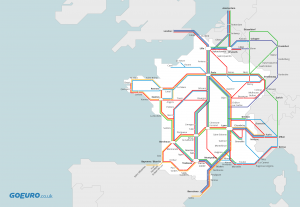France’s Macron Law - One Year On

France’s economic policy has long been criticized by proponents of laissez faire economics, accusing French lawmakers of stifling the country’s economy and preventing it from becoming the powerhouse many believe it has the potential to become.
The election of Francois Hollande of the country’s Socialist Party in 2012 did little to calm the fears of many in Brussels and Berlin. In December last year however, the French parliament passed the loi Macron, a set of radical (relatively speaking) economic measures, intended to cut through bureaucratic red tape and free the country’s economy. The architect of the law was the young Economics Minister Emmanuel Macron, and he had to face over 111 hours of parliamentary debate and 1,967 suggested amendments before the measures were passed.
Even after the amendments, many to the left of Macron and Hollande are still protesting the law tooth and nail.The measures make it easier for employers to lay-off employees, protect them from prison sentences if they have flouted regulations regarding governing negotiations, and streamline labour tribunals - for employers.
Similarly controversial was the liberalisation of Sunday trading laws, long held as sacrosanct in France. With the blessing of the local mayor, the Macron Law allows businesses to open their doors on Sunday. Only businesses in specified tourists-zones are allowed to open every Sunday, while others must make do with a dozen Sundays a year.
Bus Routes
One of the most significant reforms within the loi Macron - and one less likely to provoke the wrath of left-leaning students - is in allowing private bus companies to run routes alongside state-owned rail lines.
Following this announcement, Omio, the Berlin-based online travel aggregator, put together a map of the new bus routes in France, allowing travellers to identify the most efficient route into and around the country. The map displays just how radical a change this policy will prove for thrifty travellers in France..
Those taking the long-haul bus journeys in other European countries have for years been able to enjoy the choice only now available in France. With the continuous integration of EU countries through the Schengen Agreement has come a score of international bus companies travelling seamlessly over borders, in particular through the Benelux Economic Union and Germany.
Earlier this year the British bus company Megabus began operating in Germany, challenging the near monopoly that Eurolines used to enjoy by offering Berliners the opportunity to travel the overnight bus journey to Munich for as little as 1€.
With the introduction of the Macron Law, it is believed that budget travellers may see tickets drop by as much as 70%. France is expected to see an excess of over 5 million new coach passengers, leading to the creation of 22,000 jobs.

